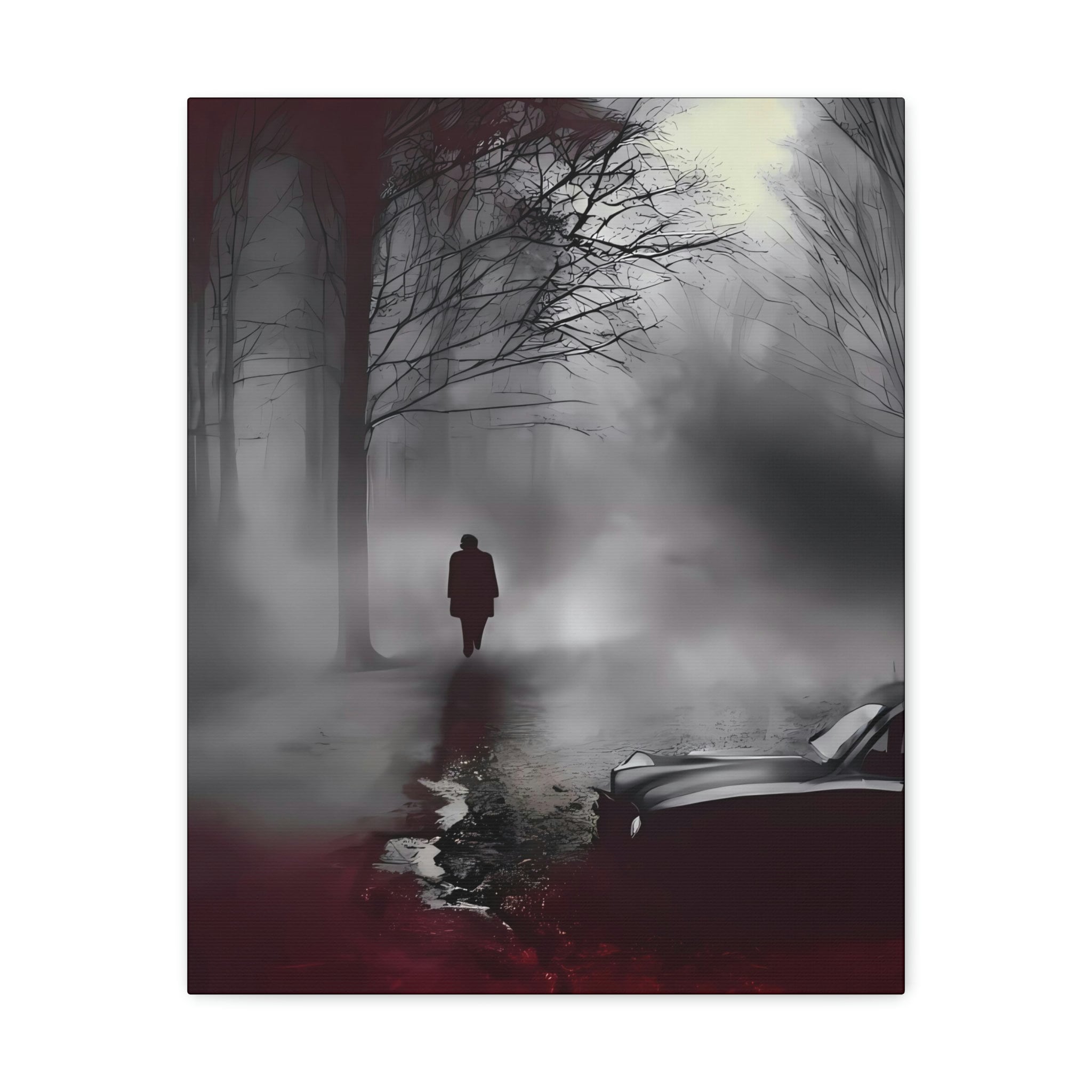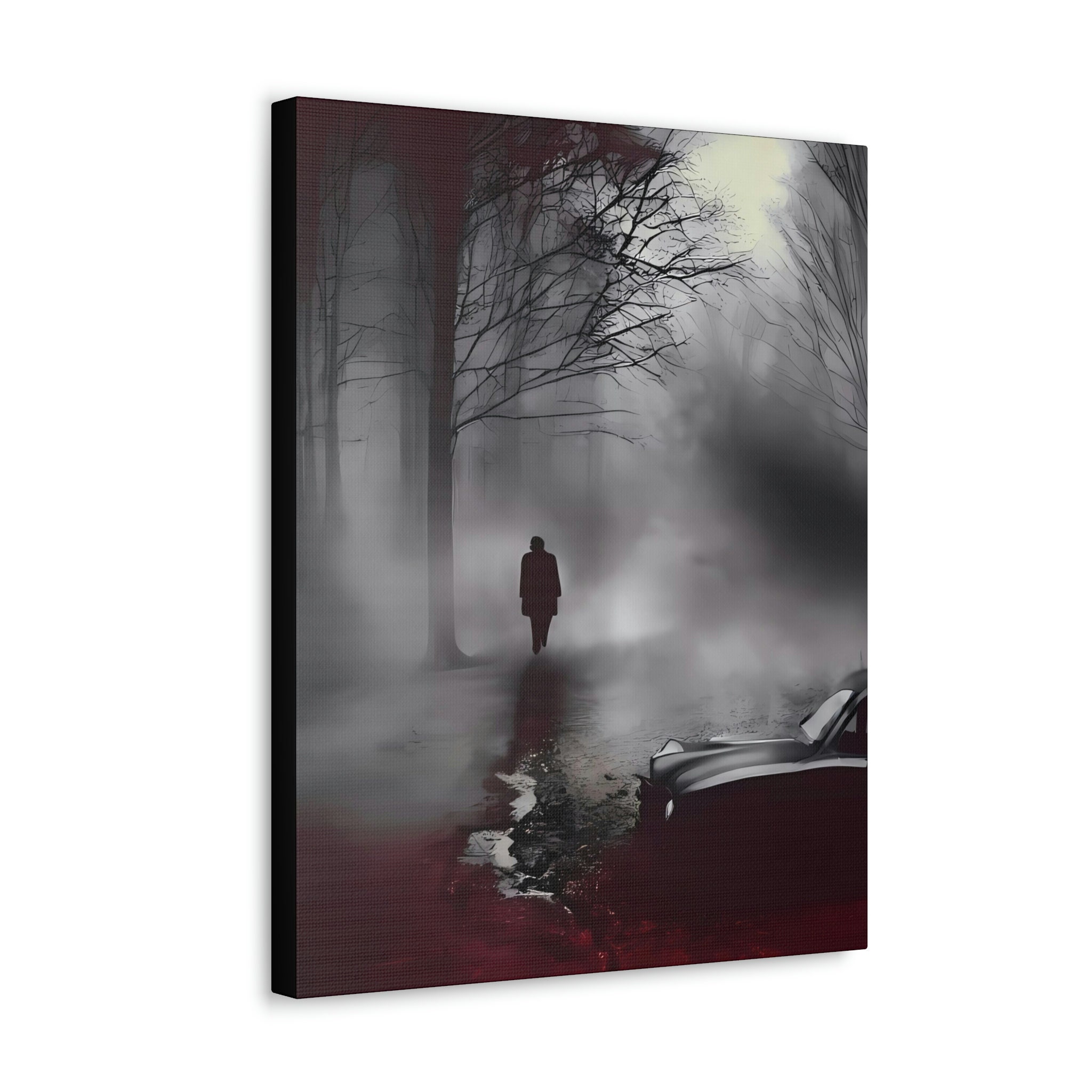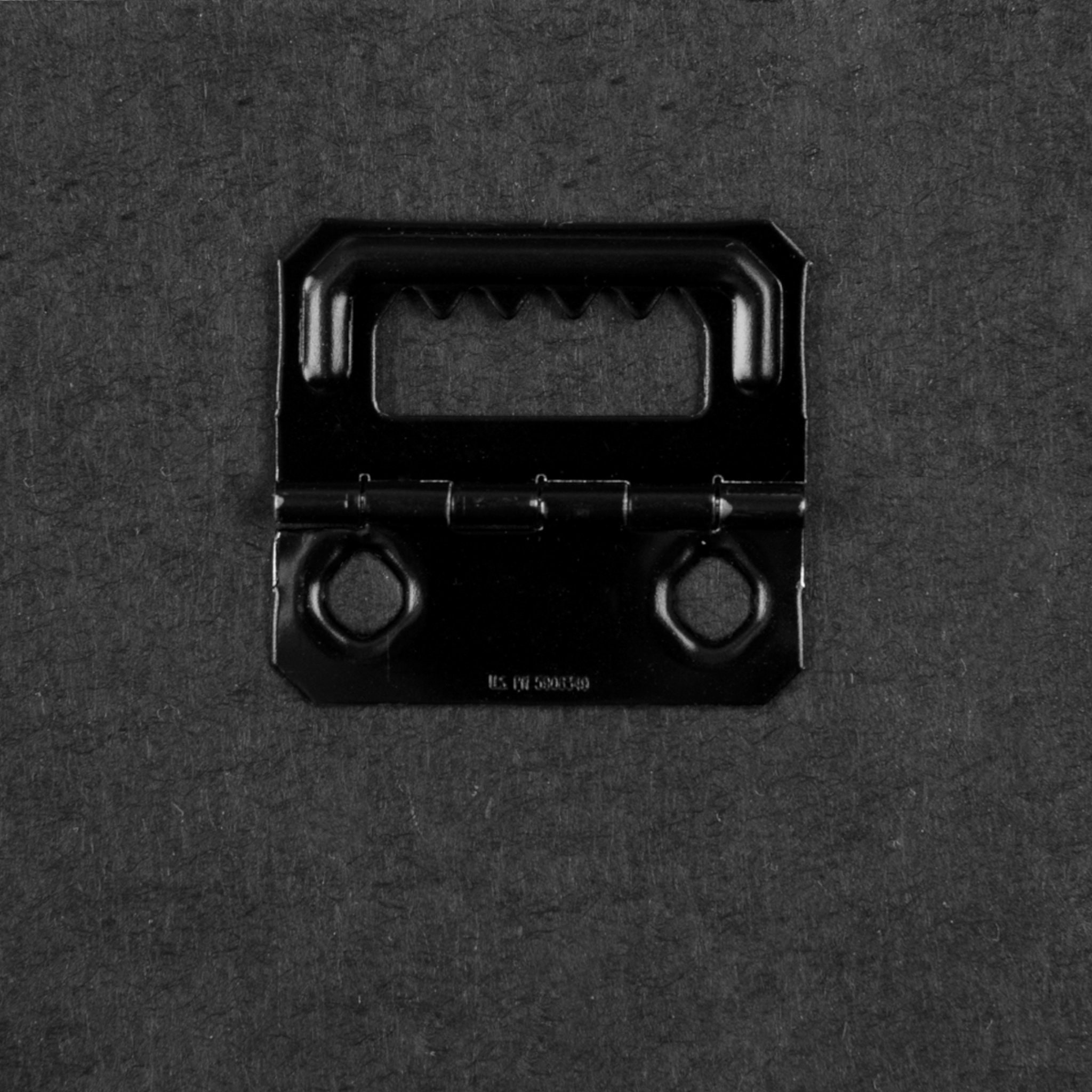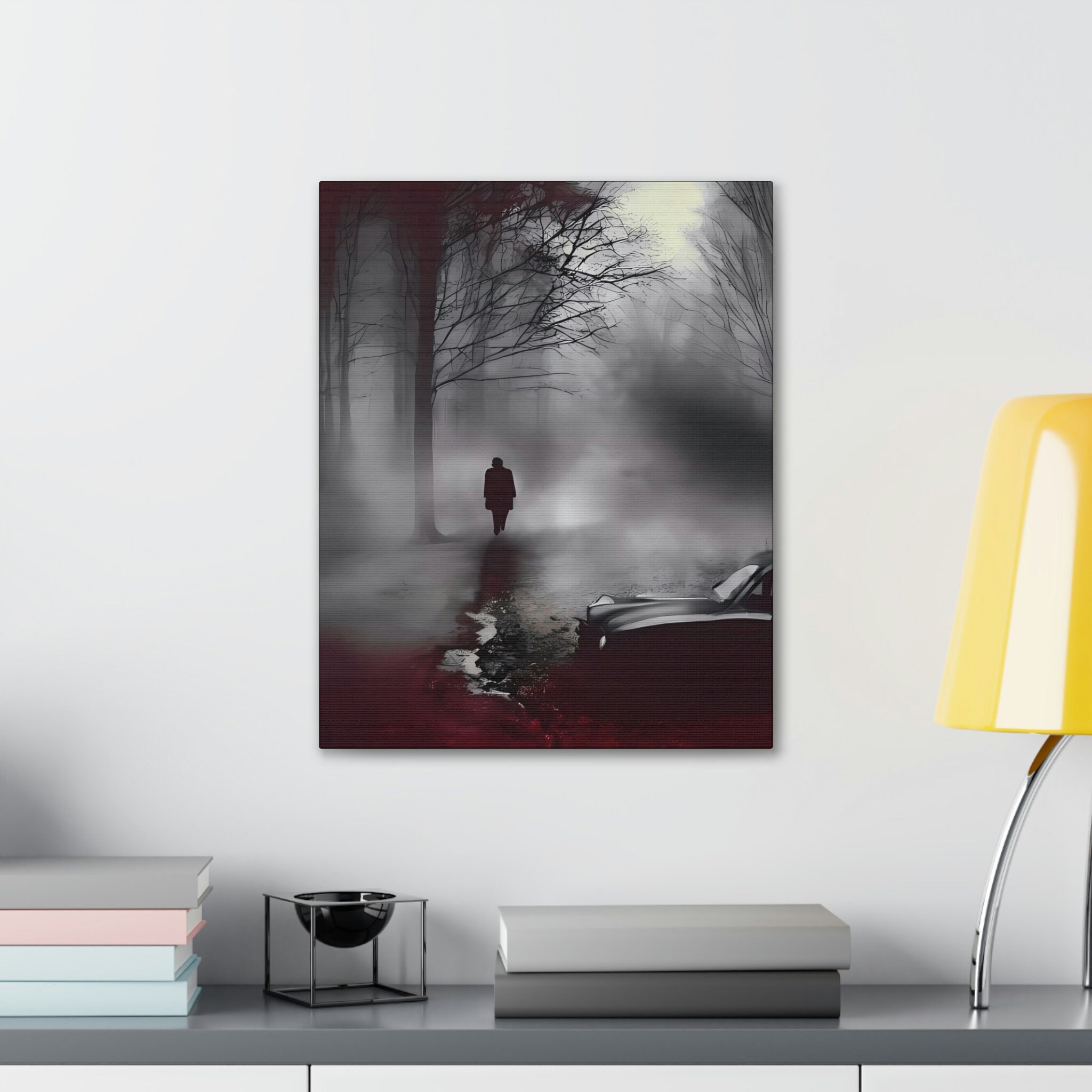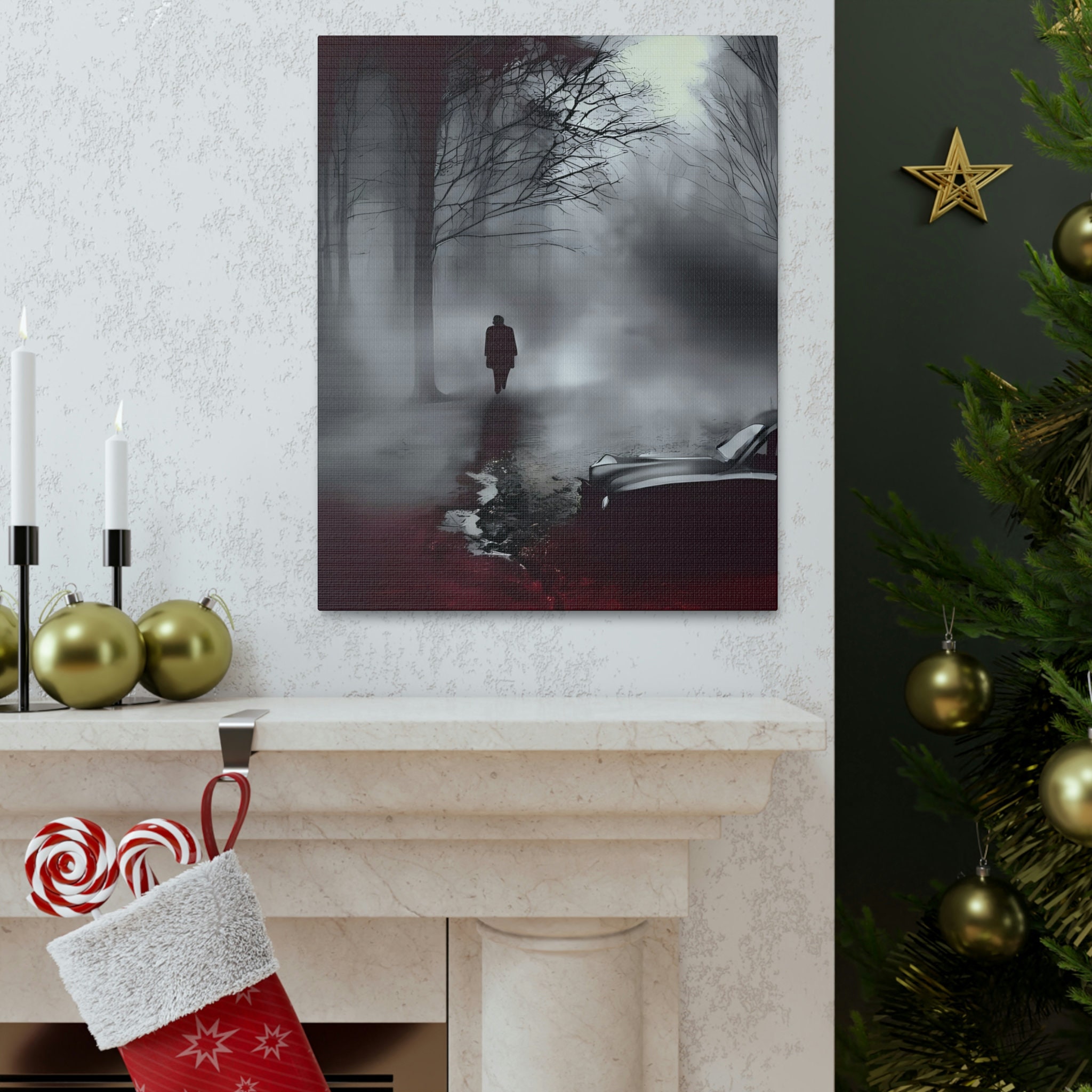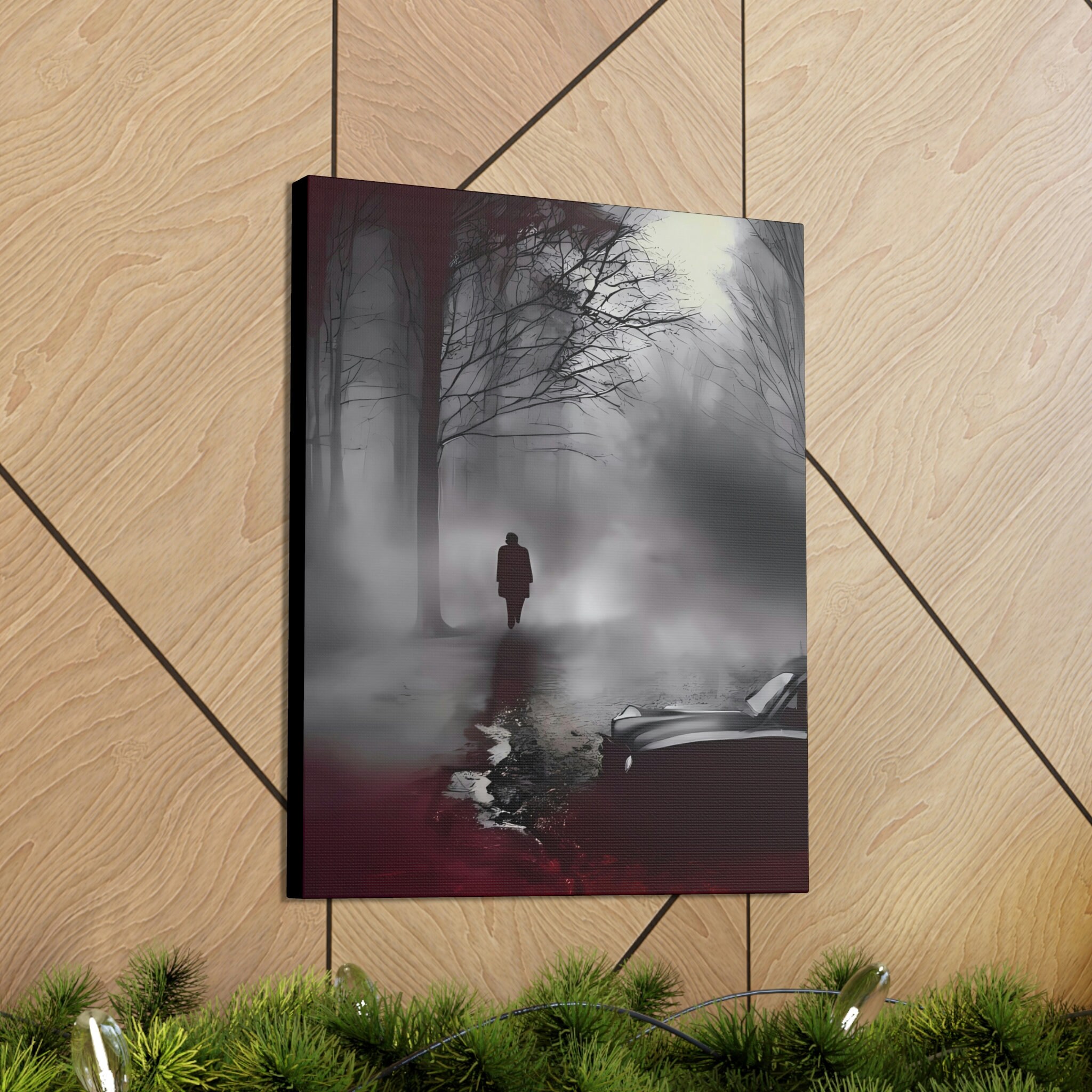Blood Trail, 16"x20" Canvas Print, Graphic Novel Noir, Mystery, Suspense, Moody, Atmospheric, Gloomy
$90.00
"Blood Trail" is an evocative piece of graphic novel noir art that illustrates a mysterious and atmospheric scene in black and white, with a striking splash of red. The composition is engulfed in heavy fog, creating an air of intrigue and uncertainty. A solitary man, depicted as a mere silhouette, walks down a narrow, single-lane road lined with shadowy trees. The road seems to disappear into the unknown, obscured by the dense fog.
The scene features a 1950's style car, its sleek contours somewhat concealed in the shadows. Only the hood of the vehicle is shown, leaving the passenger area and the rest of the car concealed from view. This adds to the enigmatic atmosphere of the piece. The most striking element of the painting is the large pool of blood in front of the car, its vivid red color contrasting sharply against the monochromatic background. A faint trail of blood follows the man as he walks away, lending the artwork its title and heightening the sense of unease.
Despite the presence of blood, the man appears uninjured, suggesting that the blood may not be his. This chilling detail leaves the viewer with more questions than answers, as they are left to imagine the events that led to this haunting moment.
"Blood Trail" captures the essence of the noir genre, using stark contrasts and a limited color palette to create a suspenseful and enigmatic narrative that lingers in the mind of the observer.
A perfect addition to every room! This canvas is made from a finely textured artist-grade cotton substrate which consistently reproduces image details with outstanding clarity and detail.
Sizes:
• 16" wide x 20" high
Canvas specs:
• Material: Ultra smooth, 100% cotton rag canvas
• Material quality: Finely textured artist-grade cotton substrate
• Surface finish: Matte
• Cotton rag fabric weight: 400 GSM (11.80 oz/y²)
Wrapped canvas frame specs:
• Wrapped canvas frame thickness: 1.25"
• Framing quality: Beautifully finished, taut corners that give a clean and crisp look
• Hanging hardware: Attached
Ink specs:
• Canon 12-color Aqueous ink
• Acid free, archival quality
Shipping from United States
Processing time
1-7 business days
Customs and import taxes
Buyers are responsible for any customs and import taxes that may apply. I'm not responsible for delays due to customs.
Payment Options
Returns & Exchanges
I gladly accept returns and exchanges
Just contact me within: 14 days of delivery
Ship items back to me within: 30 days of delivery
I don't accept cancellations
But please contact me if you have any problems with your order.
The following items can't be returned or exchanged
Because of the nature of these items, unless they arrive damaged or defective, I can't accept returns for:
- Custom or personalized orders
- Perishable products (like food or flowers)
- Digital downloads
- Intimate items (for health/hygiene reasons)
Conditions of return
Buyers are responsible for return shipping costs. If the item is not returned in its original condition, the buyer is responsible for any loss in value.
Frequently Asked Questions
What is All-Over-Print (AOP)?
All-Over Print (AOP) is a printing method that uses dye-sublimation to print a design onto polyester. During the dye sublimation process the dye is absorbed into the fabric. Since, it is not printed on the surface, like most t-shirts, it provides for a fantastic soft-to-the-touch feel and superior breathability.
AOP is a more time consuming method than screen printing or direct-to-garment (DTG) printing, so the prices are higher and the production times are longer, but the results are most definitely worth it.
Advantages of AOP:
The design won't peel off, unlike typical screen printing.
The design is part of the fabric of the item, so it will last as long as the item does.
The intensity of color is often unmatched.
What is Giclée?
Giclée (pronounced zhee-CLAY or often gee-CLAY) is a printing process that creates a museum quality, archival print. Special acid-free, paper is printed with fade resistant ink using a state-of-the-art, large format inkjet printer.
What is a gallery wrap canvas?
Gallery wrap is a style of displaying a canvas that doesn't show any visible staples or nails holding the fabric to the wooden stretcher bars. This style of canvas is intended to be hung unframed.
What is a gallery mirror wrap canvas?
Mirrored edges (mirror wrap) is used to show the whole image on the main surface, rather than printing the edges of the image on the sides (image wrap) of the canvas frame. It is usually used when there is necessary detail on the edges of the image. Image wrap is used when the focal point of the image is in the center.
